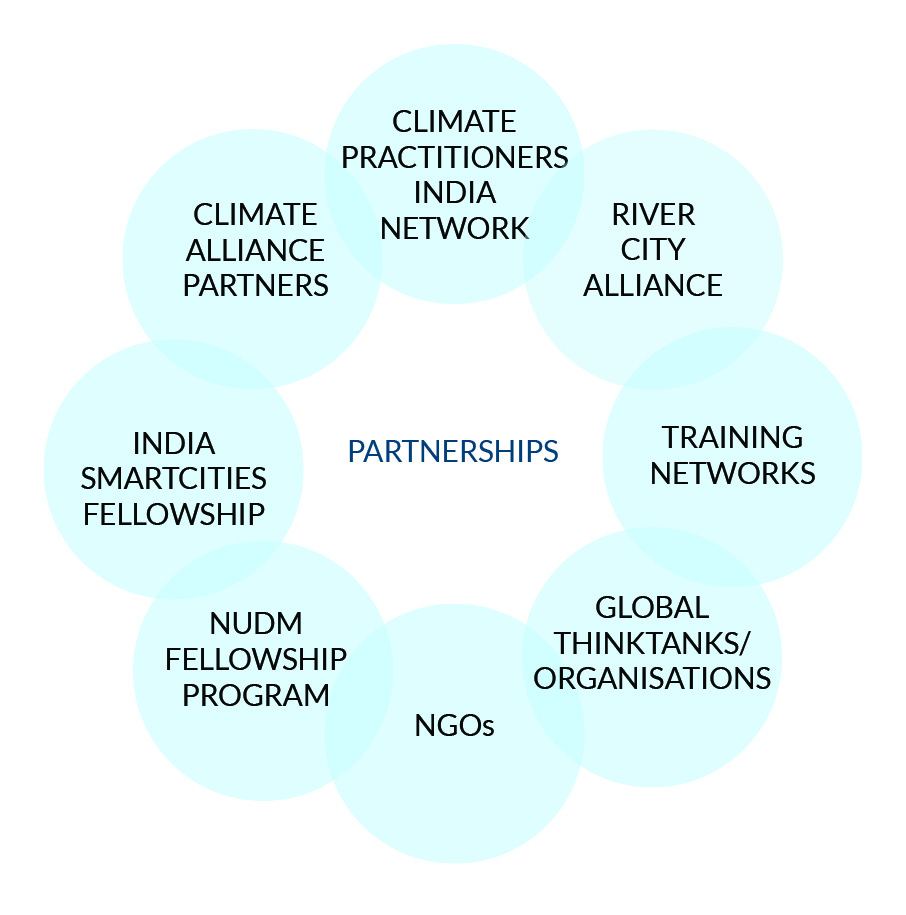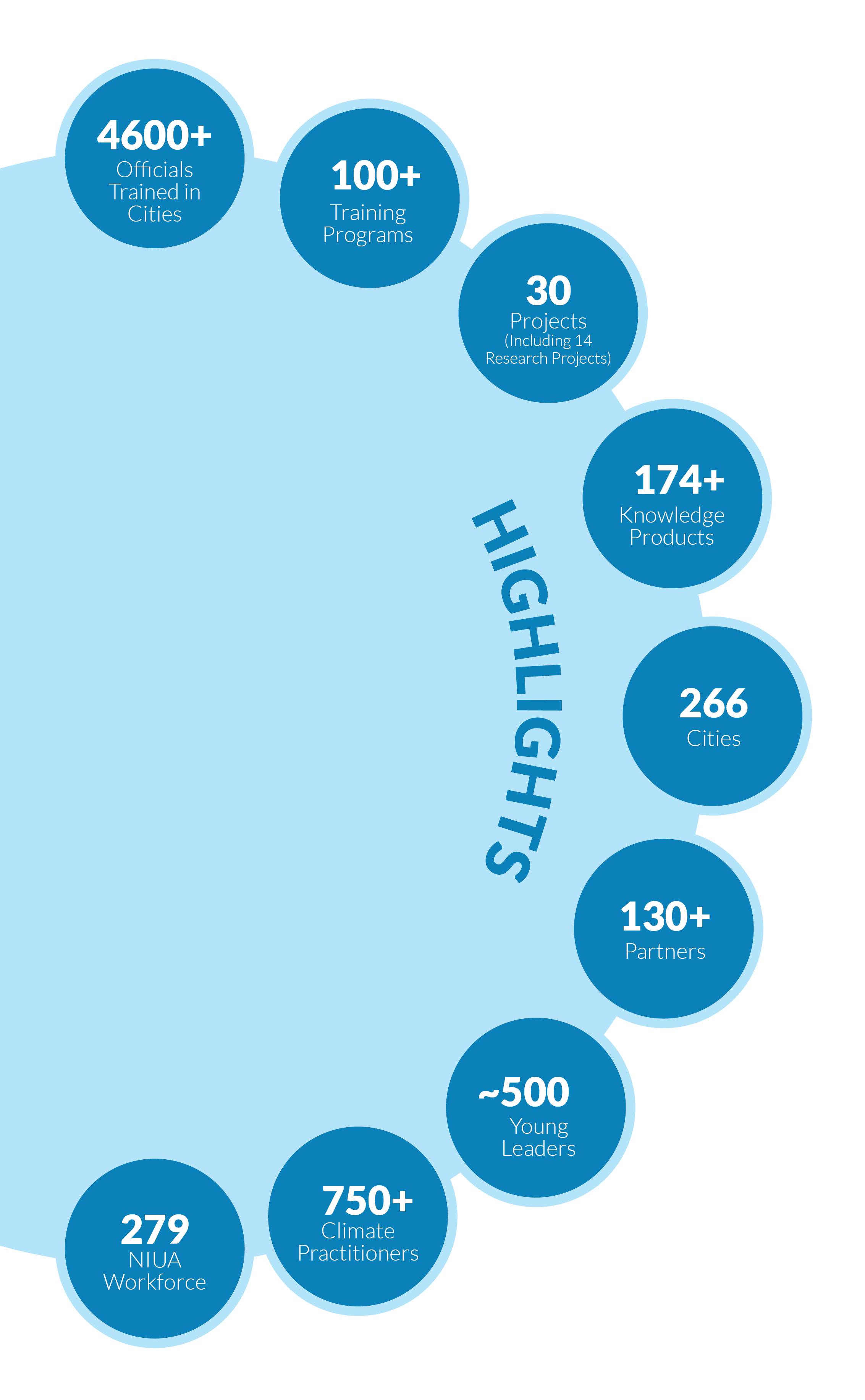
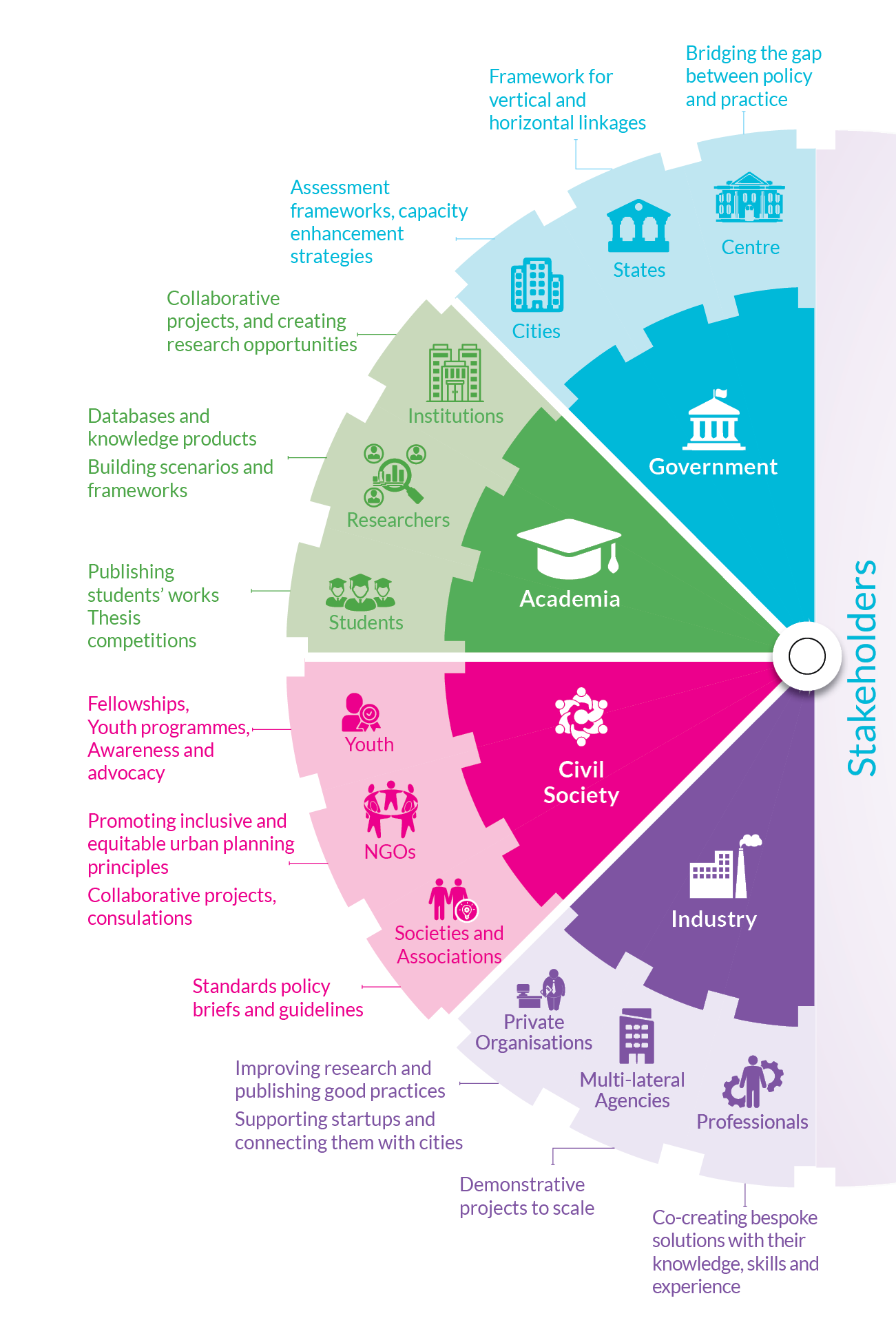
Data and Diagnose
Facilitate cutting-edge research and analytics to effectively ‘diagnose’ issues and gear cities to become leaders in realising the goals of sustainable development:
NIUA fosters innovative and ‘disruptive’ ideas for steering sustainable urban growth in the country through its research and projects. Several Indian cities have resolved specific urban issues that must be documented to understand the significance of city-level actions on achieving the global agendas India has ratified (e.g. readiness for impacts of climate change). NIUA supports cities in closing the loop between thought, strategy and action through knowledge aggregation, research, analytics and clear roadmaps designed to accelerate the transition to low-carbon, climate-ready, resource- efficient and resilient urban futures.Our knowledge products, research papers and project-based learnings cover an array of urban issues ranging from resilience and inclusion to planning frameworks and river management. We have published compendiums of best practices and advisories in areas such as heritage management, localising SDGs, and accessible and safe cities, among others. NIUA also carries out policy research and data analyses – some examples include Handbook of Urban Statistics from the PwD1 perspective, Land Value Capture for TOD2 and Understanding effectiveness of Capacity Development etc. Our research is available as open access on our website3 and SmartNet4. Through NIUA’s journals ‘Urban India’ and ‘Environment and Urbanisation – Asia, we encourage urban researchers to write on areas of enquiry emerging across India and Asia
Read More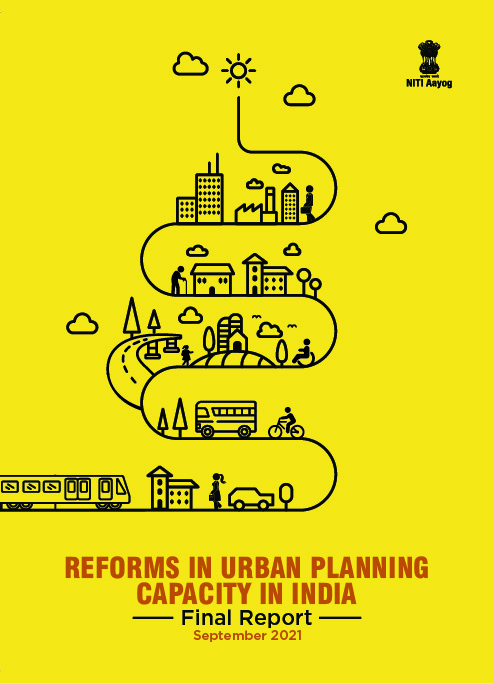
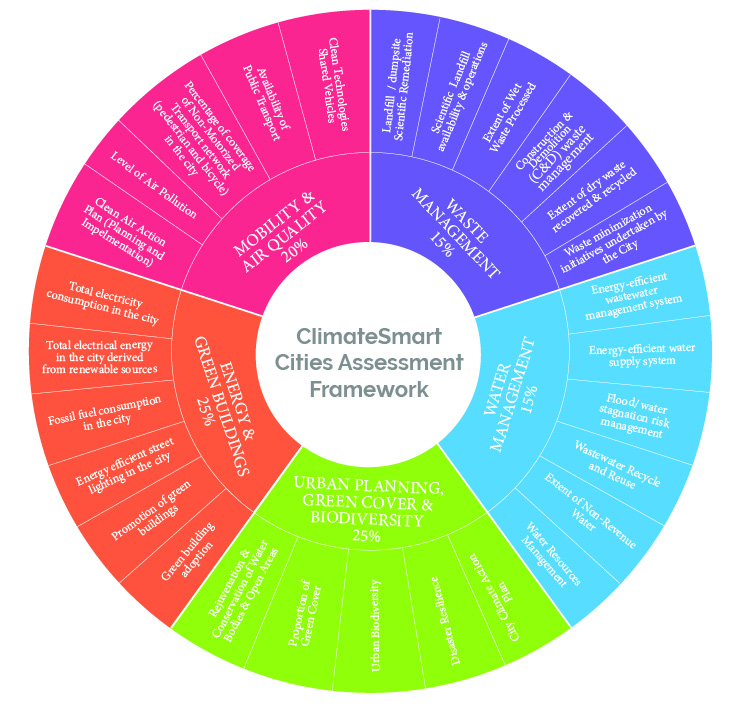
Planning
Develop demand-driven guidelines, assessment frameworks, standards and templates to enable cities to assess performance, identify priorities and realign strategies:
The idea is to empower Urban Local Bodies (ULBs) with tools to transform. As most field officials are likely to be aware of ground realities, solutions are more critical for them. We provide demand-driven technical skill enhancement and continuous and interactive sectoral assessments to create a shared vision. This will help create an environment of self-reflection, course correction and healthy competition among cities. NIUA strongly believes that local buy-in and consensus for such tools are essential for initial acceptance and lasting change. In the long run, effective coordination among various government and service-providing agencies can be ensured by universally utilising such tools and standards. We hope that a common language will help assimilate and collate of performance levels and data at city, state and country levels.NIUA developed the ClimateSmart Cities Assessment Framework (CSCAF) that 126 cities across India have adopted. We plan to include this as part of the Urban Outcomes Framework that covers more than 400 data points and tracks progress on various cross- cutting outcomes. Another significant contribution of NIUA as a technical partner was the revision of the central government’s Harmonised Guidelines and Standards for Universal Accessibility to ensure that the wide-ranging accessibility needs of persons with disabilities, the elderly, women, children etc., are taken into account.
Read MoreScaling Up
Leverage innovation and technology to ensure data-driven governance and service delivery that is resource efficient and cost-effective:
We are We think that technology has the power to simplify complex urban data and explore its usage to create the desired urban transformations. This can be used to understand urbanism through multiple lenses. Data is a powerful means to nudge decisions makers and promote ‘disruptive’ and transformational ideas. With mobile phones in every hand, practitioners, policymakers, urban managers, and decision-makers can be enabled with technology and data to improve service delivery and formulate evidence-based policies and project-monitoring. NIUA is contributing towards creating a data-smart ecosystem for urban stakeholders to deliver intelligent, inclusive, and sustainable urban development at scale. Our efforts include developing digital frameworks and platforms which enhance the overall ease of doing business and allow citizens to interact with their cities in a more informed way.NIUA is proud to steer the National Urban Digital Mission with its three key pillars of People, Processes and Platforms to mobilise, enable and empower stakeholders, improve governance through standards and frameworks and leverage technology to improve the quality of life for all. Nine standardised modules are available for cities on the UPYOG Platform to develop a common language across the country. These include property tax assessment and payment, building plan approval, municipal grievance and redressal etc. Another example of our work is CDot, our climate data observatory with an immersive data experience and repository that allows one to combine several data sets to study climate pledges under COP26.
Read More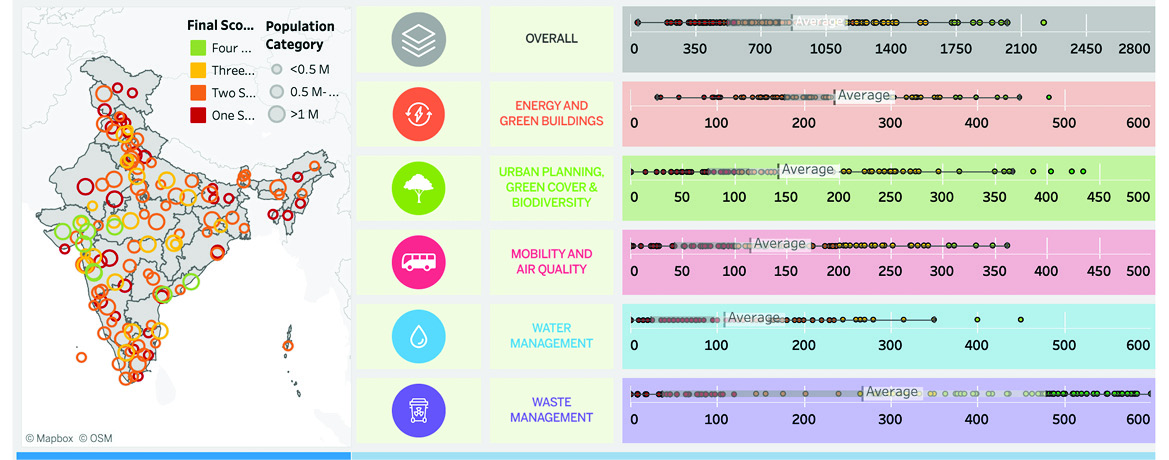
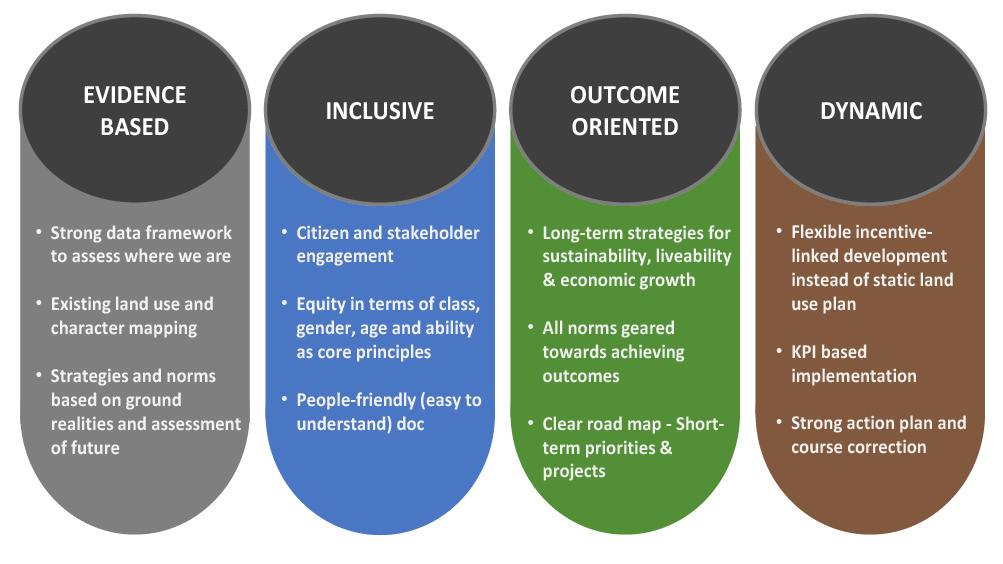
Projects
Apply strategic and dynamic city planning frameworks and ecosystem-based integrated approach for efficient and accessible city services:
We are working to create a new planning paradigm by reinventing planning frameworks as strategic, dynamic and evidence-based. Comprehensive planning for the city is also essential to encourage an ecosystem approach to services, reducing redundancies and converging efforts of multiple service-providing agencies. Planning has to ensure sustainable and inclusive development as well as respond to the need for robust economic growth and improved liveability. Additionally, plans have to address cross- cutting aspects such as climate change impacts and inclusive development. As the agency that prepared the next master plan of Delhi, we redesigned the process to be more participatory and reinvented the plan as a strategic and enabling instrument for the city’s future development. At the same time, we created a blueprint of an outcome-oriented and dynamic city plan and formulated principles of a strategic planning framework that can be utilised by cities across India.The draft Master Plan for Delhi (2041) was completed by NIUA and notified for receiving suggestions from members of the public in June 2021. We are also preparing River Management Plans for Bareilly, Moradabad and Kanpur in order to demonstrate how rivers can be better integrated with city plans. We also reviewed and revised the policy for in-situ slum rehabilitation in Delhi and conducted an assessment of climate risk and resilience for Kochi. Another initiative is the comparative studies between Asia and Africa on sustainable and healthy cities and neighbourhoods.
Read MoreCapacity Building
Create capacity grids and knowledge networks for continuous and customised enhancement of individual and institutional capacities to make governance and financing more effective:
NIUA always strives for excellence, and we understand that creating frameworks, and developing knowledge-sharing platforms is not enough to enhance individual and institutional capacities. To keep up with the ever-evolving urban sector needs and demands, capacity building has to be a continuous process. We have supported capacity building of cities, states and resource persons/ institutions for a long time through handholding, hands-on training, toolkits, peer-to-peer knowledge exchange, learning by seeing and mentorship. Given our long- standing experience and outreach, we are overlaying and assimilating these efforts to create ‘capacity grids’ to ensure continuous enhancement of general competencies for effective governance and provide customised tools for specific needs such as innovative financing, and climate resilience. We hope to nurture a culture that fosters leadership, creativity and a keenness to learn.NIUA has created the National Urban Learning Platform to build a collaborative network for Indian cities to learn from each other and the rest of the urban ecosystem. We employ modular approaches that are easy to understand and enhance learning agility, such as our training modules on the Sanitation Capacity Building Platform. NIUA coordinated the Integrated Capacity Building Programme (ICBP) for MoHUA, reaching out to more than 4000 towns and cities across the country as part of the national urban missions. Through our CITIIS (City Investments to Innovate, Integrate and Sustain) program, we handhold select cities in implementing urban infrastructure projects through technical as well as financial assistance.
Read More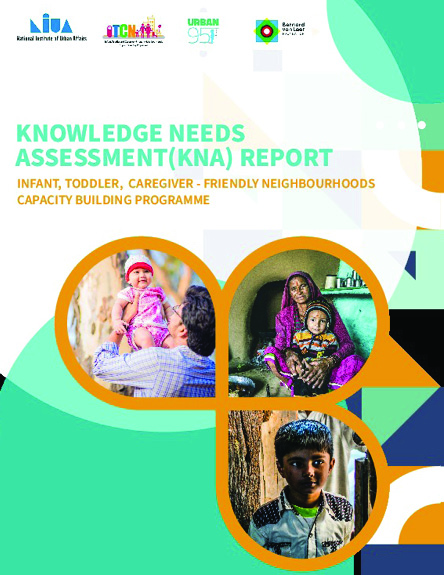
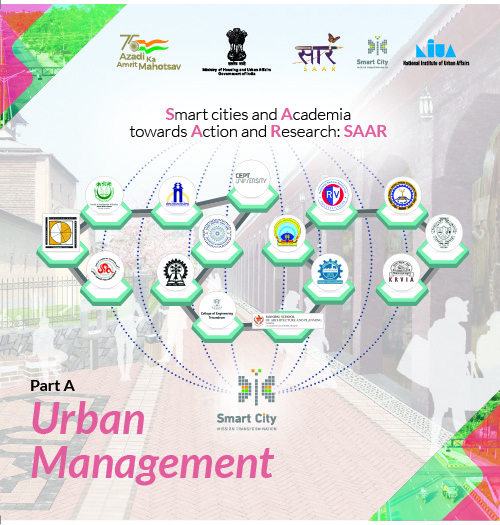
Nurturing Future Leaders
Incubate young talent in the urban sector to create future leaders and enable champions to drive sustainable urban development:
NIUA believes in the power of youth to change the
world, and that the urban sector needs new thinking. We are committed to nurturing this widely
talented albeit oft-neglected human capital that is in abundance in our country. We engage with
youth through multiple initiatives and programmes and prepare them to become change-
makers in the urban sector. In order to address existing skill gaps, we orient the youth about the
various challenges of urbanisation and make them aware of multiple career opportunities in the
sector. The innovations and enterprise that they have brought in, prove how necessary it is to
incubate and develop these future urban leaders – right now.NIUA engages with the youth through its various initiatives and special fellowships and programmes.
Our ‘Youth Futures’ project looks specifically at avenues of skill-building and livelihood for youth in
India and Brazil. As part of the public engagement exercise during the preparation of the master plan
for Delhi, we held five youth ‘sabhas’ and received beneficial suggestions and insights from the youth of
Delhi. Through the India Smart City Fellowship program, we have trained 120 bright young
professionals and among them they developed 35 projects for cities. Our NUDM fellows work in the
urban development departments, SPVs, and infrastructure development agencies in 20 states across
the country.
NIUA with MoHUA and a number of premier Indian academic institutions formulated ‘Smart cities and
Academia towards Action and Research: SAAR’, an online hub for institutions and primary city
missions to collaborate on projects.
Partnership
Foster strategic alliances and partnerships to ensure collaborative thinking, advocacy, and action:
Working with local partners as well as with organisations from across the globe, NIUA is committed to the exchange of ideas and knowledge to amplify the urban dialogue, connect solutions to the needs, and spur innovation. Strong alliances among networks of multi-level, multi- sector, multi-city government and non-government actors are impactful for collective thoughts and actions and foster collaborative governance among public agencies across the three tiers. We encourage replication and scaling up of good practices than learning from members of the network who have demonstrated successful interventions, thus saving the effort and resources that would have gone into experimenting with untried solutions. NIUA works towards making such collaborative sharing more meaningful, and facilitates horizontal and vertical convergence of ideas, utilising technology to regularly enhance the ease of exchange. We put in a lot of effort to keep the dialogue alive, and relevant and continuous to ensure impactful outcomes and achieving more from less.NIUA has generated a tremendous amount of dialogue among diverse stakeholders that has permeated through cities, civil society and academia networks. Besides being part of several networks, we manage the City Climate Alliance. Network with 62 institutional Partners and 126 cities and the River City Alliance that is subscribed. We have members from more than 100 Indian cities as part of our Climate Practitioners India Network (CPIN) to create a solution-oriented citizen engagement platform for practitioners across India on climate change.
Read More